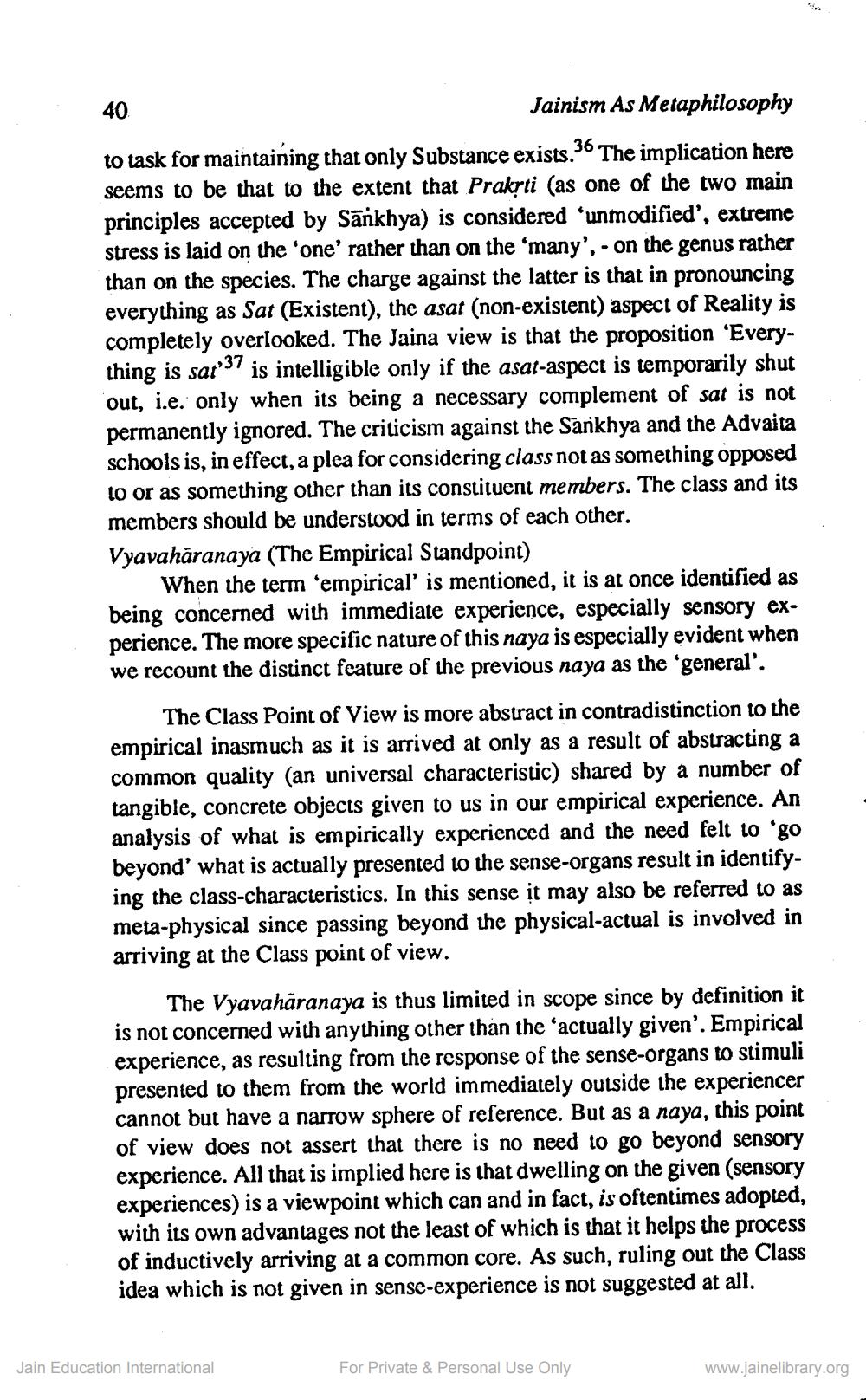________________
40
Jainism As Metaphilosophy to task for maintaining that only Substance exists.36 The implication here seems to be that to the extent that Prakrti (as one of the two main principles accepted by Sankhya) is considered 'unmodified', extreme stress is laid on the 'one' rather than on the 'many', - on the genus rather than on the species. The charge against the latter is that in pronouncing everything as Sat (Existent), the asat (non-existent) aspect of Reality is completely overlooked. The Jaina view is that the proposition 'Everything is sat’S is intelligible only if the asal-aspect is temporarily shut out, i.e. only when its being a necessary complement of sat is not permanently ignored. The criticism against the Sarkhya and the Advaita schools is, in effect, a plea for considering class not as something opposed to or as something other than its constituent members. The class and its members should be understood in terms of each other. Vyavahāranaya (The Empirical Standpoint)
When the term 'empirical' is mentioned, it is at once identified as being concerned with immediate experience, especially sensory experience. The more specific nature of this naya is especially evident when we recount the distinct feature of the previous naya as the 'general'.
The Class Point of View is more abstract in contradistinction to the empirical inasmuch as it is arrived at only as a result of abstracting a common quality (an universal characteristic) shared by a number of tangible, concrete objects given to us in our empirical experience. An analysis of what is empirically experienced and the need felt to 'go beyond' what is actually presented to the sense-organs result in identifying the class-characteristics. In this sense it may also be referred to as meta-physical since passing beyond the physical-actual is involved in arriving at the Class point of view.
The Vyavahāranaya is thus limited in scope since by definition it is not concerned with anything other than the actually given'. Empirical experience, as resulting from the response of the sense-organs to stimuli presented to them from the world immediately outside the experiencer cannot but have a narrow sphere of reference. But as a naya, this point of view does not assert that there is no need to go beyond sensory experience. All that is implied here is that dwelling on the given (sensory experiences) is a viewpoint which can and in fact, is oftentimes adopted, with its own advantages not the least of which is that it helps the process of inductively arriving at a common core. As such, ruling out the Class idea which is not given in sense-experience is not suggested at all.
Jain Education International
For Private & Personal Use Only
www.jainelibrary.org




